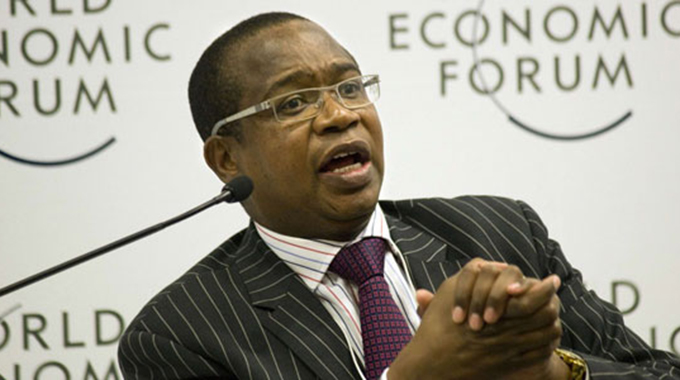EDITORIAL COMMENT : We can expect austerity this afternoon

MANY have unrealistic hopes, unfounded fears and serious misunderstandings over what Finance and Economic Development Minister Prof Mthuli Ncube will announce this afternoon when he presents his first Budget, and the first Budget of what President Mnangagwa has called the Second Republic.
For a start Prof Ncube is going to be judged on whether he produces a balanced Budget, at least for all potential recurrent expenditure. This means that the Government can only spend on salaries, pensions, travel, fuel, electricity, rents, consumables (which includes things like motor vehicles) money that it first raises in taxes.
This does not sound exciting, but it is crucial to the future of Zimbabwe. It requires three processes.
First, the Minister has to rein in Government spending. He does not have a lot of leeway, since most of what the Government spends is for services most people regard as essential.
He can nibble at the edges of civil service numbers, but sweeping cuts are impossible when we consider that 77 percent of civil servants work in education, the bulk of the uniformed services, are police officers and most of the rest are people like doctors, nurses, agricultural extension workers and that medley of immigration officers, registry officers and others in the Home Affairs Ministry.
But he can cut some of the spending by buying cheaper vehicles, cutting travel and even insisting on more emails and less printed memos. He started this process with the Transitional Stabilisation Programme and presumably will insist ministries impose greater spending discipline.
Secondly he has to ensure that all taxes approved by Parliament are collected and that tax levels are such that when collected they cover his spending. So we must understand that the roles of Santa Claus and a Finance Minister are different and that he cannot hand out “goodies”. At best he can keep what he has in taxes, and rely on discipline to ensure that budgets are not broken.
Thirdly, and this concerns the President and the Home Affairs and Justice Ministries, although Minister Ncube has some responsibilities, we need to stop people stealing through corruption or abuse of office and stop people cheating on taxes. No one will mind if he spends a little more on prison warders and prison rations to house the thieves and cheats.
There are already a raft of measures in place to encourage investments through tax breaks and the like.
So we should expect an austerity budget, not a surprise since it will flesh out the formal Government policy in the transitional arrangements and, in less formal contexts, President Mnangagwa and the Minister have both made it clear that Zimbabwe now will clean up its act and that this requires a period of austerity, a programme that can gradually be relaxed as the economy grows and so potential tax revenue grows.
The slackness of past Governments under others of tolerating over-consumption and under-production has to stop.
The Minister has mentioned privatisation of some State-owned companies and parastatals. Here we cannot expect too much. Some parastatals must be kept. For example, until Zimbabwe’s grain production is on the same footing as tobacco production, where the private sector does the work, the Grain Marketing Board is essential. But on the other hand, and the Minister has raised this already, the whole system of Command Agriculture needs to be tightened to weed out cheats and stop side marketing.
The production has been wonderful, the details are a drain. So in this huge programme he has to reinforce the production success and eliminate the downside. Some State-owned companies can be sold, but it would be difficult to give others away. The main gain might well be ending subsidies for losers.
The Budget is a core fiscal policy, not a monetary policy which is the concern of the Reserve Bank of Zimbabwe. But the two are linked. Much of the mismatch between import demand and export earnings arose because serious deficit budgeting created a large pool of money not backed by production.
Turning off the taps by correct budgeting gives the Minister and RBZ Governor the chance to freeze some of that over-sized pool of liquid cash into long-term debt, allows the Governor to push banks to lend for production not consumption so boosting the supply side, and allows the Minister to start retiring short term debt.
None of this will produce a result by the weekend. But each month the Minister pays his bills from taxes helps and allows the economy to grow via production, not consumption. Do this month after month and slowly, but surely we move out of the dark and into the sunlight.








Comments